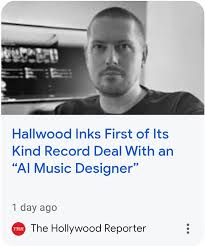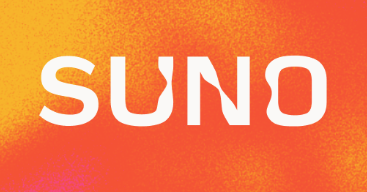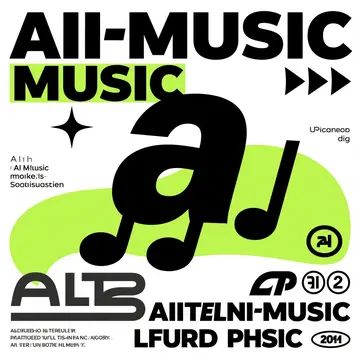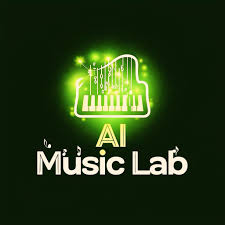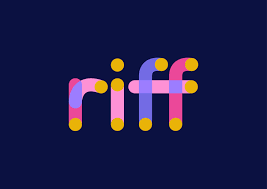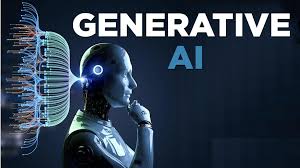Introduction: Who Gets Paid When AI Makes the Music?
As AI-generated songs flood platforms like Spotify, Apple Music, and YouTube, one big question looms large:
How will AI music artists get paid—and who owns the royalties?
Unlike human musicians, AI models don’t have bank accounts, copyright status, or even legal identities. Yet their songs are streamed, monetized, and even charted. So when AI creates a hit, who cashes in?
This article breaks down how AI music is monetized, who currently benefits, what legal gray areas remain, and how royalty models are evolving to accommodate non-human creators.
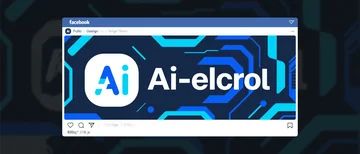
What Is an AI Music Artist?
An AI music artist is typically a digital persona or music project powered by an AI model like:
Suno, Udio, or Boomy (for generative pop or rap)
AIVA or Amper Music (for cinematic or classical compositions)
Endel or Mubert (for adaptive, real-time ambient music)
Some AI artists—like FN Meka or Noonoouri—are virtual influencers paired with human collaborators. Others, like Boomy artists, create entire songs using nothing but algorithms.
These projects are uploaded to Spotify, YouTube, Bandcamp, and other platforms just like human music. But AI can’t legally own a copyright or collect royalties—so someone else has to.
So, Who Gets Paid for AI Music?
1. The Human Behind the AI
In most cases, the person or company who initiates the AI composition owns the copyright (if allowed) and receives payment from:
Streaming platforms (Spotify, YouTube, Apple Music)
Music distributors (DistroKid, Symphonic, CD Baby)
Licensing deals (TV, ads, games)
Sync libraries (Artlist, Epidemic Sound)
?? Example: A user creates a track using Boomy and uploads it via their own DistroKid account. They’ll earn Spotify royalties for every stream.
2. The AI Platform (as co-owner or licensor)
Some AI platforms claim partial or full rights:
Boomy: Offers royalty-splitting depending on your plan (free users share revenue).
Soundful: Keeps 100% of rights for free users unless you subscribe to a paid tier.
Udio and Suno: As of now, allow personal use and sharing, but do not guarantee commercial rights in their free tiers.
So in some cases, the platform gets paid directly, and the creator earns nothing unless they license the track properly.
3. Music Libraries or Labels Using AI
Some companies like Universal Music Group are testing AI tools to generate music using catalog artist voices (like The Beatles "Now and Then" restoration via AI). The rights still belong to the label, and royalties are split with the original estates or stakeholders.
Royalty Breakdown: AI vs Human Artist
| Component | Human Artist | AI Artist |
|---|---|---|
| Composition Rights | Owned by composer | Owned by user/platform |
| Master Recording Rights | Owned by artist/label | Owned by AI user/platform |
| Performance Royalties | Paid via PROs (ASCAP, etc) | Sometimes uncollectable |
| Mechanical Royalties | Paid for each stream/sale | Paid to uploader/platform |
| Sync Licensing | Paid to label/publisher | Paid to rights holder (human) |
Bottom line: humans still get paid for AI music—just not the AI itself.
What About AI-Generated Vocals?
Many new AI tools like Voicify, Suno, and Udio create AI vocals that mimic genre styles or artist personas. However, you can’t legally use real artist voices without consent.
If your AI song sounds like Drake, you may be hit with a takedown. If it’s an original synthetic voice created via AI tools, you can monetize it—but still, you get paid, not the AI.
What Are the Legal Challenges?
This space is still legally gray, but here are the main issues:
1. AI Can’t Hold Copyright (In Most Countries)
In the U.S., the Copyright Office says only human-made works can be copyrighted.
So if a track is 100% AI-generated with no human creative input, it’s not copyrightable—meaning it could be used by others freely.
2. Royalty Collection Systems Aren’t Built for AI
Performing Rights Organizations (ASCAP, BMI) typically require a human composer with a legal name and bank account.
That means AI-generated music often misses out on PRO royalties, unless human edits or compositions are layered on top.
3. Licensing Confusion
What counts as original if AI borrowed from 10,000 training tracks? Courts haven’t decided yet. This leaves open risk for lawsuits or takedowns—especially for AI vocals.
Will AI Music Artists Ever Get Paid Directly?
Not likely. Since AI isn't a legal person, it can't:
Register with copyright offices
Open a bank account
Enter into licensing agreements
But it’s possible that AI personas will be owned by companies or virtual identity managers, allowing them to act as “l(fā)egal artist projects” and collect royalties on behalf of the AI.
A future where virtual artists are treated like brands (similar to Gorillaz or Hatsune Miku) is already happening.
Real Examples of AI Music Getting Paid
Boomy artists like “Clutch Sosa” and “Yung Shalack” have earned thousands from Spotify streams
Noonoouri, an AI influencer and music artist, signed a record deal with Warner Music in 2023
Endel partnered with Amazon Alexa to monetize AI soundscapes in real time
Ghostwriter977, the viral Drake-style AI creator, received offers from major labels after millions of plays—though their track was later removed
FAQ: How AI Music Payments Work
Q1: Can AI music earn royalties on Spotify?
Yes, as long as a human uploads it and owns the rights.
Q2: Can AI models like ChatGPT or Suno get paid?
No, but the person who uses the model and uploads the track can be paid.
Q3: Is it legal to use AI to make commercial music?
Only if the AI platform allows it (check license), and if you don’t mimic existing artists without permission.
Q4: Do AI-generated songs need to be registered?
To collect royalties, you still need to register the work under a human name—AI can’t hold IP rights.
Q5: Who owns AI music?
Either the human who initiated it, the platform that licensed the tool, or both—depending on terms of use.
Conclusion: The Future of AI Music Payment Is Human-Handled (For Now)
AI music artists won't get paid themselves—but the people and platforms behind them will. In 2025, creators who use AI responsibly, credit themselves properly, and understand the licensing structure can still profit from AI music.
But the industry is evolving fast. As copyright laws update and platforms like Spotify begin labeling AI music, expect to see new royalty models emerge—maybe even for AI-assisted collaborations, not just human ones.
Learn more about AI MUSIC


